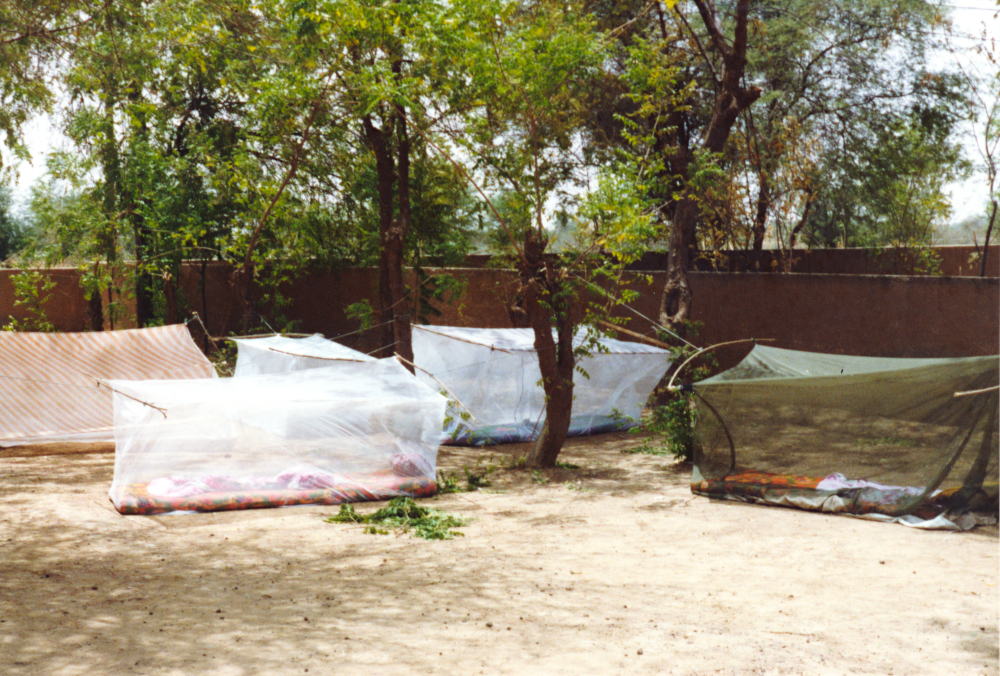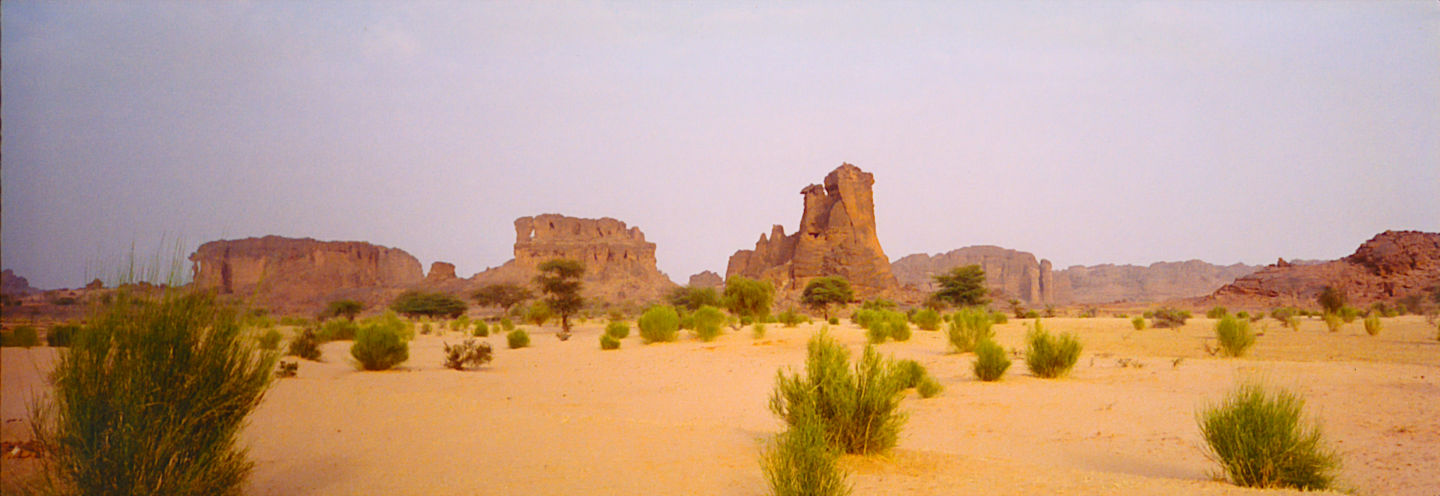One of the first phrases I learned in Hassaniya was mnayn makaresh, which can be best translated as “where’s the butt pot?” You’d ask that when you had to go to the latrine; the makaresh was the teapot–like vessel used to pour water in lieu of using toilet paper. Why it didn’t just stay in the latrine is something I didn’t think to wonder about until now.
Hassaniya is an Arabic language brought to the region by the Beni Hassan tribe in the 15th century. It’s spoken, not written. Mauritanians learn Standard Arabic in school, and many of them were amused that we would write Hassaniya down. That’s how we learned: by listening and transcribing into our notebooks. It’s to the Peace Corps’ credit that they taught language in a way that really worked—intensely, immersed in the community, and with a real sense of priority of what needed to be taught first.
Our language lessons were part of our community-based training. My cohort included education volunteers (of which I was one) and small-enterprise-development volunteers. We were in Boghé, along the Senegal river in the southwest of the country; our SED friends were in Kaédi, about 100 kilometers southeast. Each group would spend maybe ten days at a time with their host families and going to language lessons before all coming back to Boghé for days together at the training center outside of town.

My host family during training spoke Hassaniya but was culturally more affiliated with Senegal. One of my host-sisters spoke French and was the only person I could communicate with much at all. Other than that, in the early days I was rendered completely incompetent by language and cultural differences. Unable to speak and still learning to eat properly, I felt a connection with the months-old infant of the family who spent time lying on her back mindlessly staring at the sky, much as I myself did.

We got up to speed quickly, though. Language lessons were intense. There were two sessions a day, two or three hours in the morning and another two or three in the afternoon. In between it was too hot to do much except commune with the infants. My group had one teacher and four other volunteers. We would gather under a shade tree, notebooks in one hand and Nalgene bottles of treated well water in the other, and stumble through role plays and monologues, practicing greetings (which were varied and could seem endless), descriptions of our families back home, and explanations of why we were in Mauritania in the first place. Numbers, days of the week, months; transportation and how to ask for help; illnesses, thirst, and hunger. While a child’s brain is like a sponge for soaking up languages, mine at 23 felt like a dishrag being twisted dry at the end of every day. It was getting the job done but not without some pain. I came, in time, to like that feeling, complete mental exhaustion offset somewhat by the buzz of learning so much. Only language learning feels like that.
In the end, my Hassaniya was okay. I could speak better than I could understand, and so I spent a large part of my two years mildly confused at all times. The truly proficient could wield idioms and proverbs at will, to the delight of their Mauritanian friends. I could never keep them straight for some reason, even though they were rich and colorful. There were stories about hyenas and bandits and voyages and vagabonds, and while it may be true that drop by drop the wadi fills with water, it was at times too much for my mind to hold.


